Shortage of youth mental health services in Iowa reaches crisis; families are in despair
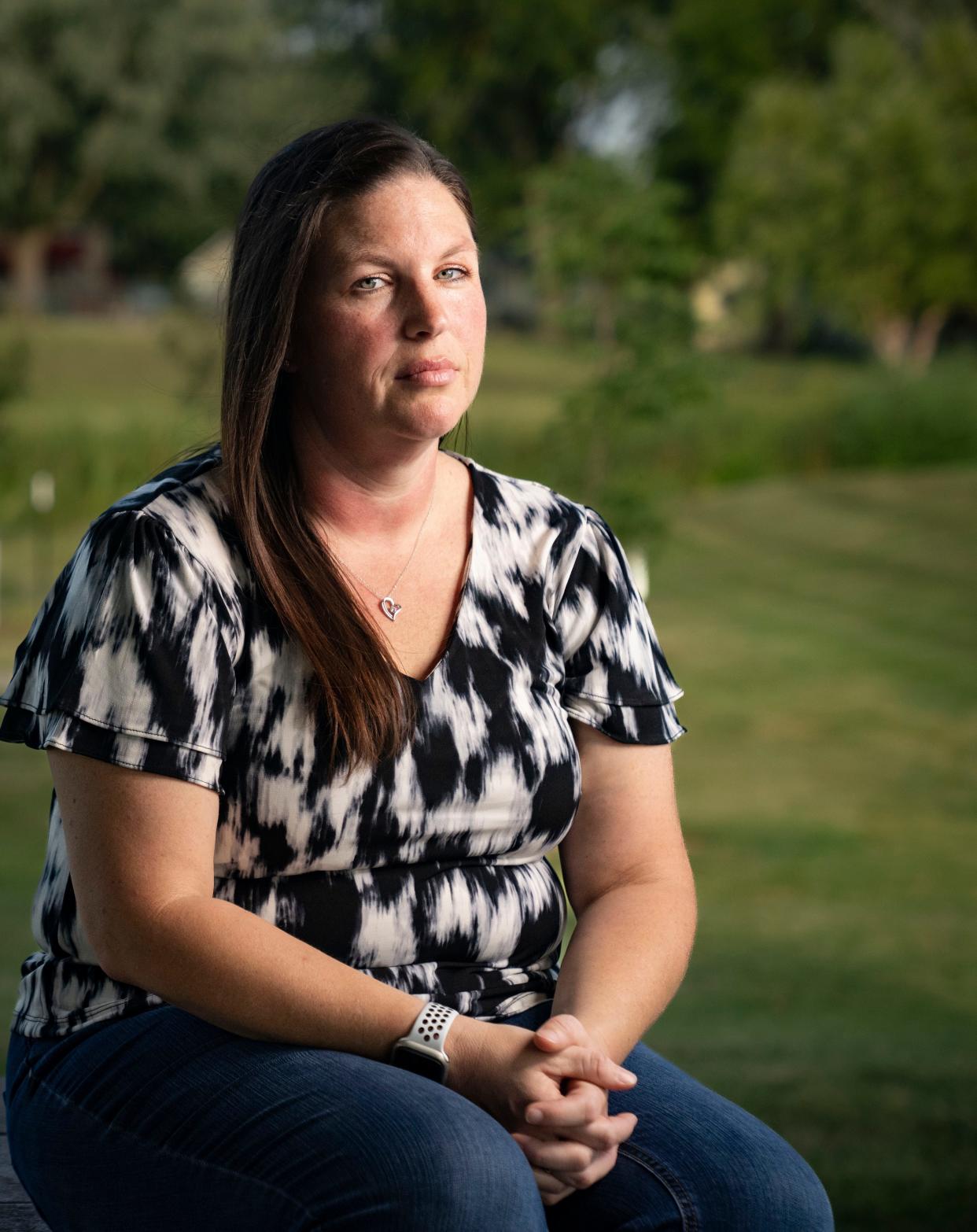
First of two parts.
Jane Day hit her breaking point two years ago, the day her suicidal daughter, struggling with a mix of serious mental health issues, stood on the Penn Street bridge over Interstate 380 near North Liberty, threatening to jump.
“I got to the bridge on one side and my husband was on the other,” said Day, of Norwalk, who lived in Tiffin at the time. “We didn’t know if she was alive or dead.”
Authorities shut down the interstate, and a rescue team tackled the then-16-year-old on the bridge. She was taken to the University of Iowa Hospitals & Clinics. Previously, every psychiatric medical institution for children in the state had rejected her for residential treatment. But she finally was accommodated at Orchard Place, Des Moines' oldest mental health nonprofit for youth.
Day said the care her daughter received at Orchard Place was excellent. “But it literally took her being on a f-----g bridge for that to happen,” she said.
In Iowa and across the country, demand for programs and services for some children with mental, behavioral and intellectual disabilities has reached a crisis point, triggering a high-stakes lawsuit against the state and pleas by advocacy groups and providers for action.
Almost three years after the isolation and anxiety of the COVID-19 pandemic began to exacerbate mental health issues for children, wait lists for psychiatric medical institutions for youth, also called PMICs, have reached new highs.
Worker shortages have hamstrung care providers, and some programs are shuttering for lack of financial support. Providers say children have become more suicidal and violent, placing additional pressure on their programs and their employees.
"Definitely we are seeing a level of higher acuity post-pandemic … unlike any of us have seen in our careers," Kelly Garcia, director of Iowa's Department of Health and Human Services, told Watchdog. "This is something we're struggling with as a nation."
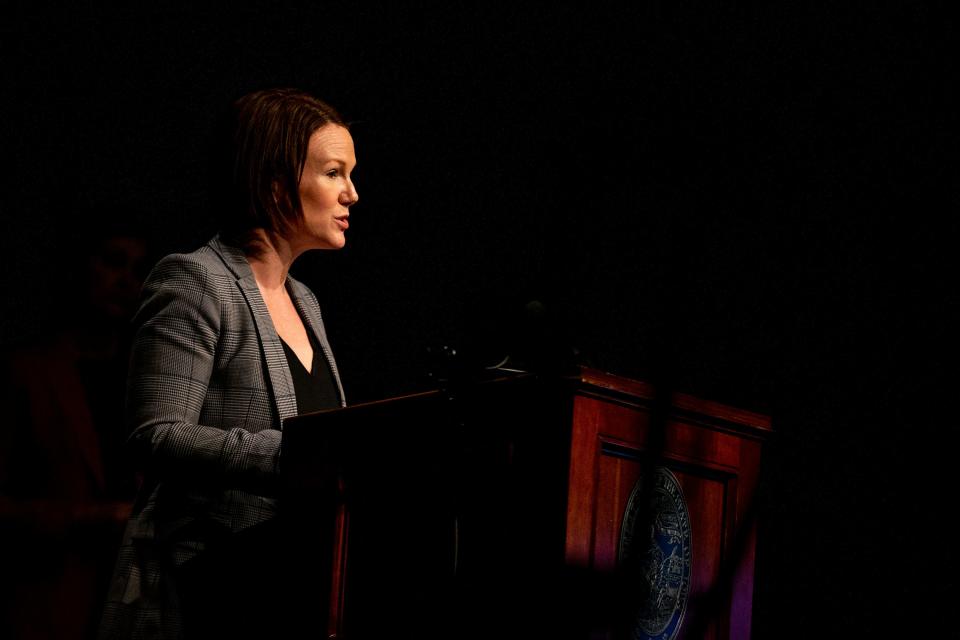
Programming also is missing for children placed in the state's care after being removed from their homes because of alleged neglect or abuse. Congress took dramatic steps in 2018 with passage of the Families First Preservation Services Act to shift federal child welfare money away from long-term congregate care settings for kids.
In the five years since the act passed, the state has leaned less on foster care and group home facilities. But incidents of maltreatment of children in the state's custody increased from 14.3 per thousand in 2020 to 15.3 in 2021, the most recent year for which figures are available.
From the state's 2019 fiscal year through its 2023 fiscal year, the number of group home beds for youth in the child welfare system tumbled by nearly half, to 357 from over 660. Shelter beds dropped by 55% and now number just 107 statewide, according to data obtained under Iowa’s open records law from Iowa's DHHS.
The number of licensed foster care homes available to temporarily house abused and neglected children across the state also hit a low point, dropping 20% since 2019 to 1,635.
'No reject, no eject': Iowa providers can't turn away a youth
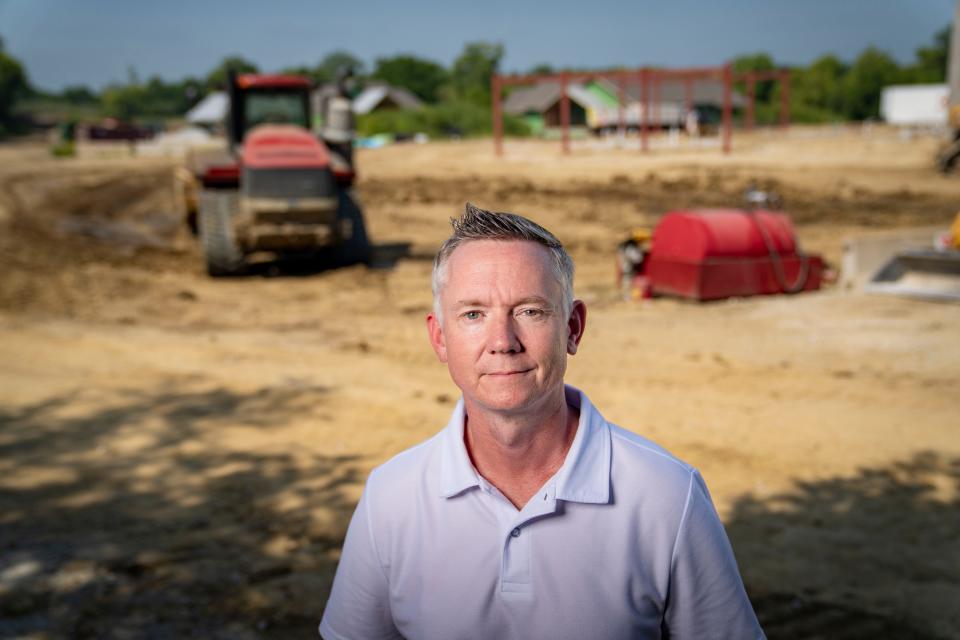
Eleven states ― California, Georgia, Hawaii, Illinois, Nevada, New Mexico, North Dakota, Oregon, Pennsylvania, West Virginia and Washington ― have run out of foster homes and crisis center beds for troubled youth. They've housed foster children in crisis in hotels, jails, homeless and emergency shelters and the offices of human service workers.
In North Carolina, the state's human services agency has been accused of warehousing disabled children in foster homes for lack of more appropriate settings.
In Iowa, the state's DHHS has for several years given some providers who offer shelter and residential care for kids in crisis no choice but to accept children no matter how challenging they are.
Under “no eject, no reject” contract language mandated by the state agency since 2016, residential programs and shelters that do business with the state have to agree not to turn away youth, no matter how severe their problems or whether they have low IQs, autism or histories of sexual predation or violent behavior. (The psychiatric medical institutions for youth that rejected Day's daughter are funded primarily through Medicaid and are subject to different contracting and oversight.)
“Whatever it is, we can’t say no,” said Andrew Allen, president and CEO of the YSS shelter in Ames. “That can make it extremely tenuous for our staff.”
Previously: Gov. Kim Reynolds signs sweeping tax cut package that will restructure Iowa's mental health funding
Allen said he’d rather accept youth at the two emergency shelters he runs in Ames and Mason City, though they are at capacity, than have children go without help or wind up homeless. But the state still lacks specialized services for children with acute needs before they wind up in shelters, the state's destination of last resort.
“The issue is, there are not enough of the right beds to meet the needs of our most vulnerable youth,” Allen said. “Because there are fewer beds, the kids we get have a higher acuity.”
The state of Iowa this year will spend much less on foster care than it has in years past but more on group and shelter care for troubled youth. Allen said shelter care received a reimbursement rate increase from the state two years ago ― to $225 a day from $146. But he said his daily costs for each child in shelter are still “north of $300."
“I lose about $100 per day per kid,” he said. “We subsidize with fundraising and other services.”
While other providers have stopped offering shelter services, Allen, a former resident of YSS who eventually got drug treatment at age 17, has fought to expand the education, treatment, counseling and other services his organization provides.
By next fall, he plans to open a new youth recovery campus near Cambridge, between Ames and Des Moines, offering residential addiction treatment, crisis stabilization and emergency shelter for youth.
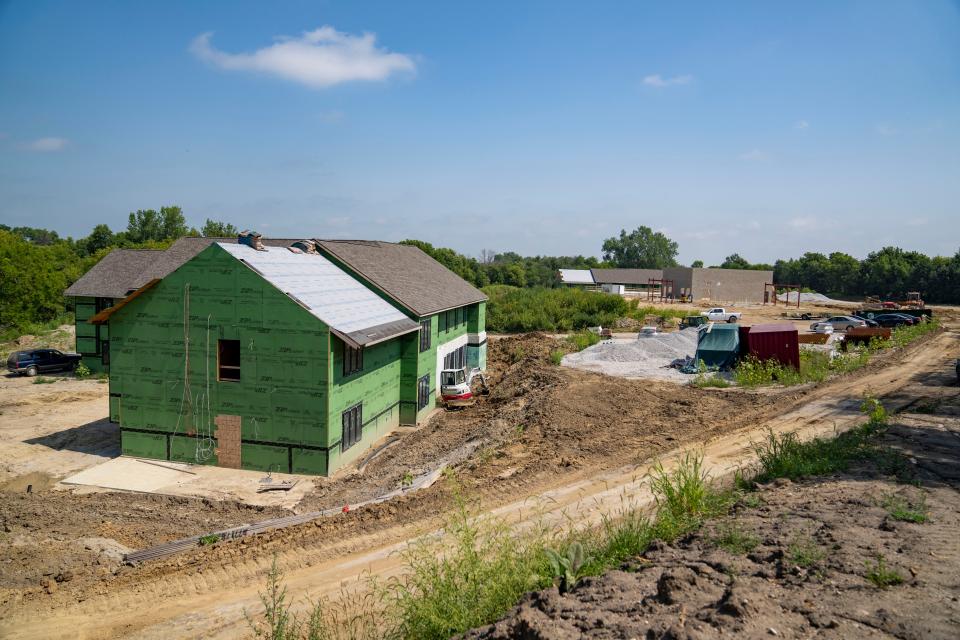
Allen said he’s been working for most of his eight years as YSS’ executive director to make the 70-bed facility, Ember Recovery Campus, a reality. He said it will be a trauma-informed setting for kids with substance use disorders.
When it opens and is fully staffed, it is expected to triple to 700 the number of youth served annually by YSS.
But Allen said the state still needs specialized programs for kids with specific issues, from low IQs to trauma impacts to severe behavior and criminal tendencies.
“When they don’t get that, they wind up in shelter. And that puts stress on Iowa’s system, our employees and impacts our ability to best meet the needs of kids and create hope and opportunity.”
Too few services for Iowa children, and not enough beds
Some parents and providers staunchly defend the need for high-quality residential facilities for youth. But DHHS director Garcia and others at the agency believe the reduced reliance on long-term congregate care ultimately is a good thing. Those facilities generally have poorer outcomes than family-based settings and can cost up to 10 times more, according to the Annie E. Casey Foundation.
Other research shows they can adversely affect already traumatized children. One 2021 study that gained national attention found youth frequently regard the experience of group and institutional settings, whether public or private, as punitive, prison-like and traumatic.
The Families First Preservation Services Act requires that children in state child welfare systems be placed first with relatives or licensed foster families and restricts the use of congregate care. It also provides for the use of more federal dollars on foster care prevention services such as mental health, substance abuse treatment services, parent education and individual and family counseling.
"We want kids with family. Period. End of story," Garcia said. "But there are a subset of kids who do benefit from additional supports for a period of time."
The Legislature this year approved more funding for Medicaid substance abuse and mental health services. The increases provide enhanced reimbursement rates to providers for substance abuse and mental health counseling and increase the daily rate for psychiatric institutional care for children.
This fiscal year, the rate increases will include $7 million more for mental health therapy and $3 million more apiece for substance abuse treatment and psychiatric medical institutions for youth.
But Iowa parents and providers, echoing their peers across the country, say the state still has a dearth of community-based programs and services for all children with complex issues who need more than basic therapy but less extreme options than shelters or hospitalized settings.
In an interview, Garcia agreed, saying the state needs specialized care for kids with a mix of behavioral and intellectual disabilities, such as those with low IQs who have more difficulty learning and lack skills necessary for independent daily living.
She said DHHS has been working to improve Medicaid reimbursement rates for some providers.
For kids in the child welfare system, Iowa also is starting a pilot to reintroduce therapeutic foster homes in the Cedar Rapids area, Garcia said. The state will start by recruiting foster parents to provide 10 homes to work on intensive skill building with up to two children in each who have high needs.
"Ultimately, it will be no longer than a nine-month stay," Garcia said.
For families, a breaking point: 'It was just the deepest of despair'
Without a better system of care for all children before behavior reaches a crisis, providers say, children can often pose a greater risk to themselves and others or wind up in the correctional system or on the street. And their families can get overwhelmed by the stress.
Nina Richtman, a single parent in Des Moines of two teenage special-needs boys adopted from the foster care system, said she didn’t realize how heavily she needed the services she was able to cobble together until the pandemic hit ― and those services were largely taken away.
One of Richtman's sons needed constant attention. He has reactive attachment disorder and debilitating anxiety that, without supervision, escalates quickly into negative behavior. Her other son, who has a low IQ and has been diagnosed with oppositional defiant disorder, ADHD and anxiety, was on a waiting list for months during the pandemic for treatment in a residential setting.
From school help to respite care to therapy for her sons, Richtman said she used to receive about 50 hours of support every week. During the pandemic, she said, the most assistance she was able to get with her boys amounted to about 12 hours a week.
Over a period of months, she said, she became increasingly hopeless and unable to escape the constant stress.
“I would look around and think to myself, 'This is a way I could kill myself,'” she said. “It wasn’t that I wanted to die. I wanted to escape my reality.”
On a day in October 2020 when her blood pressure was sky high and she couldn’t stop crying, she said, she felt forced to check herself into MercyOne Medical Center in Des Moines.
“I couldn’t stop thinking about death, even though I knew I needed to do life,” she said. “It was just the deepest of despair.”
Richtman said both her sons eventually got more help. In July, her youngest son entered a respite program after a year on a waiting list. But she said there’s long been a big shortage in Iowa of therapeutic services for kids with high needs beyond crisis care.
“That’s not a solution; it’s a Band-Aid,” she said. “Iowa needs a trained workforce in children’s mental health and trauma.”
'It feels like people just want to push us away'
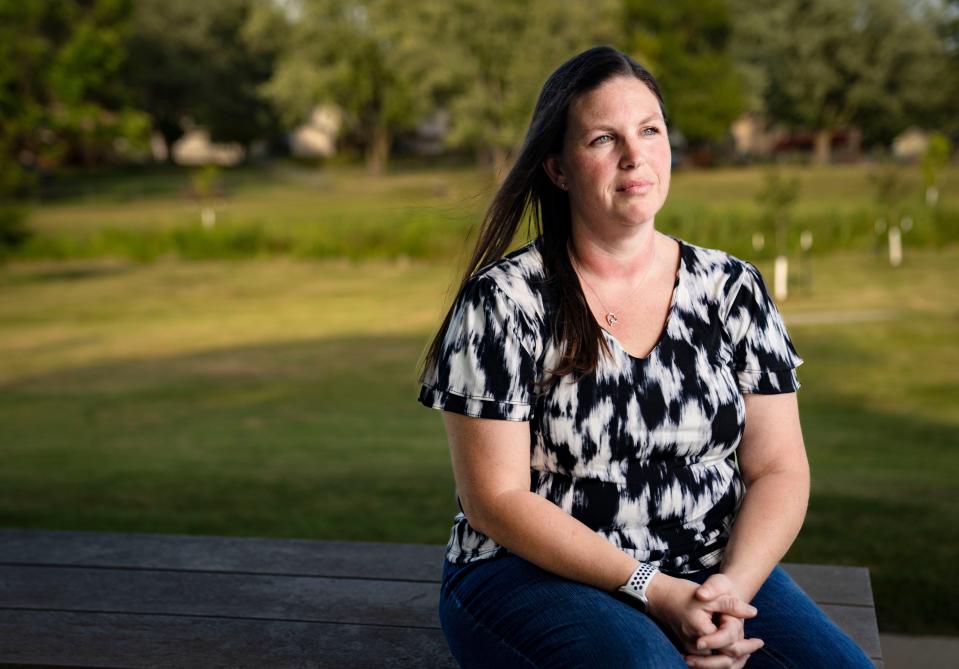
Day said her daughter, who is now 18 and living in a temporary group home, still makes poor decisions. Diagnosed at different times with anxiety, major depressive disorder, PTSD and disruptive mood dysregulation disorder, she’s been hospitalized several times.
But now that her daughter is an adult, Day said, she’s less able to help her or get medical information from providers.
“She’s going to kill herself or be killed. That’s my constant fear,” Day said. “It’s been exhausting. Mentally and physically exhausting. I function at work, but our home life is completely chaotic. The worrying ― and just trying to make sure she gets what she needs ― is constant.”
Her daughter, who asked not to be identified because of her mental health struggles, said she experienced a constant lack of available programs while growing up, a situation made worse by the way people judge young people with depression, anxiousness, a desire to isolate and other challenges.
"It feels like people just want to push us away," she said. "It feels like they don’t understand what we go through. When we try to get the help we need, we can’t get the help we need. It’s more like people don’t care."
Lee Rood's Reader's Watchdog column helps Iowans get answers and accountability from public officials, the justice system, businesses and nonprofits. Reach her at lrood@registermedia.com, at 515-284-8549, on Twitter at @leerood or on Facebook at Facebook.com/readerswatchdog.
This article originally appeared on Des Moines Register: Iowa's youth mental health crisis grows; families are in despair

